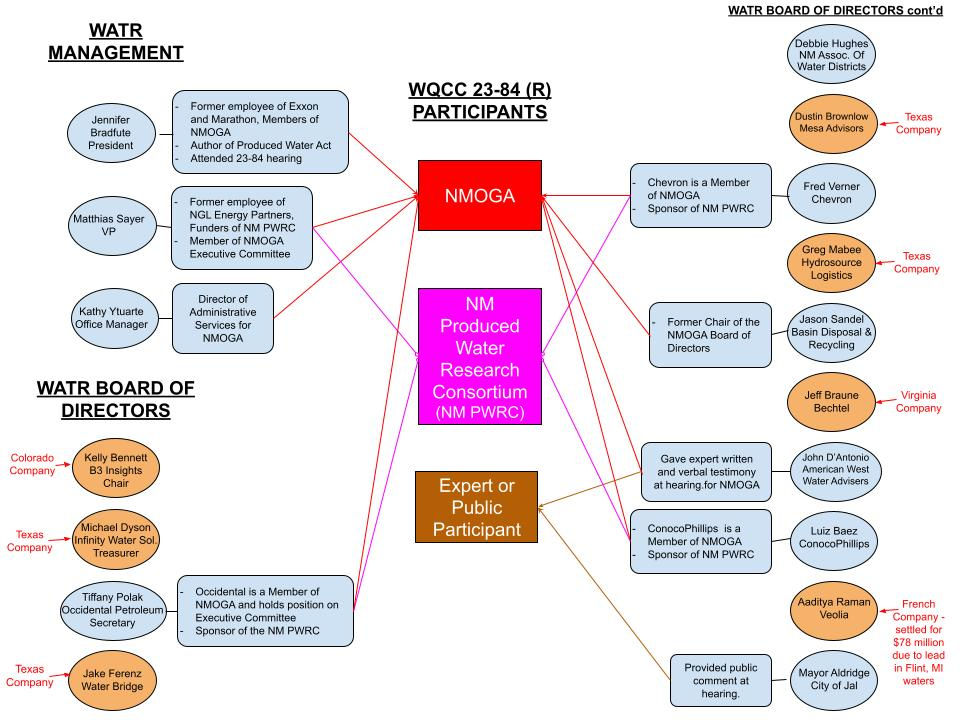Hearing extended into July. So far fracking waste reuse looks as risky as we thought.
- Defend NM Water
- May 19, 2024
- 2 min read

Artwork by Lucas Liao.
Yesterday the hearing was extended for four days that will begin July 1st. So far the biggest takeaways from the hearing:
The Produced Water Act requires that any discharge or use of produced water requires a permit, but the draft rule as proposed requires only a Notice of Intent which NMED will not have authority to deny so long as the noticer checks off all the boxes and doesn't have a plan to discharge the waste onto land or water. Unplanned spills, however, are a common and daily occurrences on the oil field when the water is transported, even though its against the law!
The oil and gas industry is very upset that the original draft prohibited only discharge of untreated produced water, but the current proposed rule also prohibits discharge of treated waste. Why does it do that? Because the Produced Water Research Consortium has failed to prove that treatment processes result in something safe for humans or the environment.
But the rule still authorizes reuse for demonstration projects and industrial projects even though there is also no data proving that is safe either! The testimony about data and safety from NMED and the Produced Water Research Consortium was revealed during the hearing to be "underwhelming." There is nothing in the rule about treatment quality, worker safety or reporting requirements, and there was no assessment of the risks of authorizing industrial projects. Reuse authorization was added to the rule only under pressure from the oil and gas industry and the people in our government who are trying to help them!
On Friday cross examination of the Consortium Director was focused on an external review of the research Consortium, a group largely populated by oil and gas representatives, which found:
It is unlikely that the Consortium can accomplish its stated mission of generating the data needed to support the development of regulations if it has inadequate funding, an unclear organization structure and lack of clarity in expectations in research and outcomes. The recommendations of the Committee or some similar actions are needed if the Consortium is to continue.
Testimony also revealed that the most recent April 2024 treatment study published by the Consortium Director of Research found that byproducts created during the process of treatment "exhibited levels of toxicity ranging from very high to high in one or more toxicity categories (mostly developmental toxicity and acute ecotoxicity)." So cleaning the fracking waste creates even more toxic compounds that could impact human development and biodiversity!
Witnesses from the Consortium and NMED, which drafted this rule, admitted that fracking waste is toxic to humans, aquatic life and the environment and cannot be safely treated as of yet. It is more and more clear that this rule was introduced prematurely because the oil and gas industry is in such a hurry to deal with their toxic waste, as they produce more waste than they do oil. New Mexico does not want to become their dumping ground!
Thank you everyone who showed up to tell them exactly that. We'll be back in July to repeat our call for science based rules and regulations that protect our water!



Comments